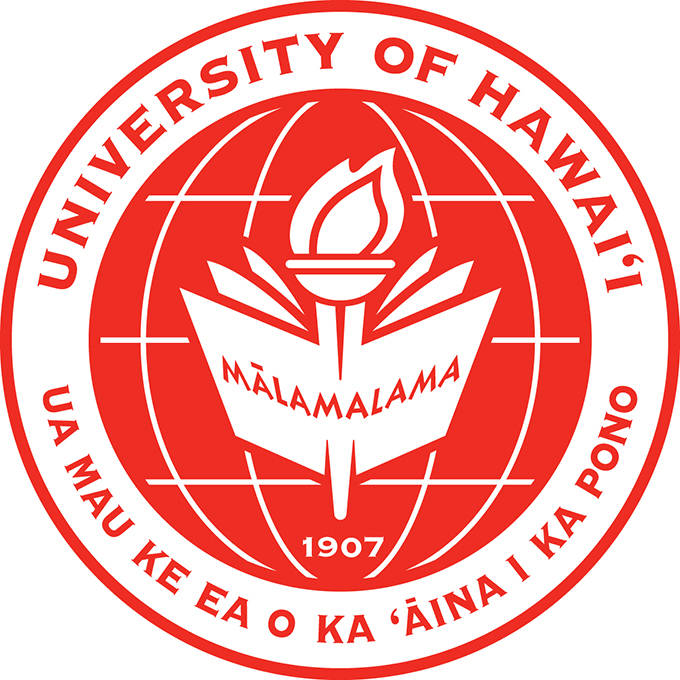The 2019 legislative session ended last week and there were some triumphs and disappointments for the University of Hawaii.
“There were times (in) this legislative session that I would characterize as challenging,” said Kalbert Young, University of Hawaii vice president for budget and finance, and chief financial officer, in a legislative recap posted Monday on the UH website. “However, in general, I believe the university fared decently well considering the budget and level of funding support provided for areas within the university.”
Among funding appropriated for the University of Hawaii at Hilo, the Legislature provided funds for a new academic program set to launch in the fall, athletics, custodial and maintenance positions, and other campus improvements.
Interim Vice Chancellor for Administrative Affairs Kalei Rapoza said that throughout the legislative session, the university monitors bills and talks to legislators as needed, while UH system staff “heavily monitors” what happens at the Capitol in Honolulu.
“I wouldn’t say we were surprised,” he said of funding appropriated to the university. “I think overall we’re happy with what we’re able to be given by legislators and the request that was approved.”
Those funds include:
• $321,000 in the capital budget for construction and equipment for an aeronautical science program, which is set to take flight this fall.
According to Rapoza, equipment includes two open cockpit simulators, six desktop simulators, maintenance and software upgrades and unmanned aircraft systems equipment and maintenance.
The provisional Bachelor of Science degree program was approved by the UH Board of Regents in late 2018 and has two concentrations — one in commercial pilot training and another in commercial aerial information technology, which focuses on work with unmanned aviation systems, or drones.
“This is fantastic, because it gives us the funding (so) that we can purchase professional-grade simulators for the students to learn how to fly in,” said Ken Hon, interim vice chancellor for academic affairs.
According to Hon, each simulator costs more than $100,000 each, and there’s additional funds to buy unmanned aerial vehicles for teaching, which “really allows us to go forward with the program. … This really will create a really great environment for students to come and learn in.”
Having the state provide this level of support for the new program is a “big boost to the accreditation effort,” he said.
The accreditation process will continue through the summer.
Hon said there are currently 11 students enrolled in the provisional program.
• $3 million in the capital budget for Daniel K. Inouye College of Pharmacy lab improvements.
According to Rapoza, once the university’s new pharmacy building is complete, the College of Pharmacy’s current location, composed of four modular buildings, will be converted into lab space and the pharmacy labs, currently located in Panaewa, will move to campus.
• $143,784 in the operating budget for fiscal years 2019-20 and 2020-21 for custodial and maintenance positions.
That includes three full-time equivalent positions and funding for additional custodial and maintenance staff, according to Rapoza.
Rapoza said that during the past several years, the university has had new buildings open up, adding about 72,000 square feet of space, and in the fall the new Daniel K. Inouye College of Pharmacy will open and add another 45,000 square feet of space.
“In that time, we have not had an increase in custodial and maintenance staff to keep pace with the increase in square footage,” he said.
• $5 million in “renew, improve and modernize” funds for the 2019-20 fiscal year and $8 million the following fiscal year.
While subject to change, Rapoza said that in 2019-20 the university plans to renovate and repair the Campus Center and computing center, as well as repave the tennis courts, while in 2020-21 it plans repairs and renovations to Edith Kanakaole Hall, Edwin H. Mookini Library, University Classroom Building and portable buildings 1-4.
• $4 million for athletics at UH-Manoa and UH-Hilo.
Not funded was Senate Bill 313, which initially requested $375,000 for the upcoming 2019-20 fiscal year, which begins July 1, and $300,00 for the 2020-21 fiscal year for the establishment of a permanent wayfinding program at ‘Imiloa Astronomy Center.
‘Imiloa has offered outreach programs for about 12 years, but its current wayfinding outreach program, MANU (Modern and Ancient Ways of Navigating our Universe) ‘Imiloa, was launched in 2015.
Part of the outreach to public schools includes the use of a portable dome to teach celestial navigation techniques, experiences and history.
While ‘Imiloa currently has temporary positions that support the needs of the wayfinding program, Executive Director Ka‘iu Kimura said the funding would have permanently established two positions.
“Naturally, we were disappointed with our bill not being funded this legislative session,” she said.
But with it not being funded, “we’ll just continue what we’ve been doing, going after competitive grants, sponsors and donations to fund our outreach initiative,” Kimura said.
Email Stephanie Salmons at ssalmons@hawaiitribune-herald.com.



